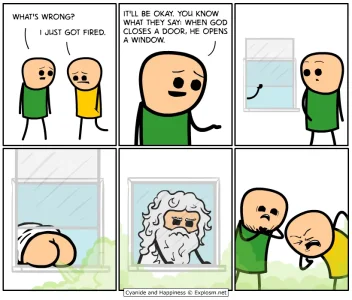D
Deleted member 16771
I agree with @Gaze that EQ is just as important as IQ. I think in this day and age we are taught to be more sensitive to certain matters. I don't know if that is something to be judged negatively or positively - there sure are aspects of both - so for the time being I'll just take it as it is. However, it happens just as often as not that difficult subjects are not being adressed in growing up and therefore some people don't learn how to deal with it. I guess it will be an effect of EQ more than IQ whether someone is (in)sensitive or starts to react instead of responding.
I don't think political orientation has anything to do with having a discussion of any kind when all parties are equal. I remember having read an article which referenced guidelines to debating (if I were home I would look up which essay they were from) and it said among other things that the best debates are to be had with those who have a completely different perspective from your own; you should be able to listen to one another's viewpoints and accept them as viewpoints, address them instead of just reacting to them - obviously you're allowed to have feelings about these things, but it may not be the best approach in a debate to have them overpower you and perhaps even irrationalise your arguments in the process. I mean, even if you have strong feelings about something that may threaten the rationality of what you say, you might as well just go ahead and say it, right? Those points, too, could be discussed, even if the discussion went a little ways off for a while. Am I right? However, it may exceed the level of self-awareness of some people, as it is hard to acheive, especially face-to-face in real-time discussions. I am only just starting to do that myself, and that is without the f2f-element.
To address your question proper, it may have a bit to do with maturity of the intellectual kind, but mostly for an insufficient validation and education on emotional maturity. Because while it is widely said that people should be accepting and open, people rarely are or develop it in a way that makes their opinions impervious to attacks (or perceived attacks, not saying that you were) or even makes their opinions flexible enough to adapt (to) new perspectives.
Hi Ginny, just on the point about emotional intelligence, I think we ought to make the distinction between 'sensitivity' and 'censorship'. I wouldn't like to feel that something is off the table for discussion 'just because'.
About your points on debating, I think we are of the same mind as to how you should go into them and how it should be done. Perhaps some people, however, are primarily in a threat-seeking mode when getting to know new people. They are concerned with spotting the red flags and uncovering a potential nutcase rather than weighing controversial ideas as an intellectual exercise.
As people raise points here, however, I'm conscious of a balance that has to be struck in being interesting and challenging vs safe and acceptable, and to which side I would rather fall. I think I would probably rather be too challenging/antisocial than too safe, now that I think about it. Its not like I want to give people bad experiences, but that I'd rather risk that in pursuit of a better one.


